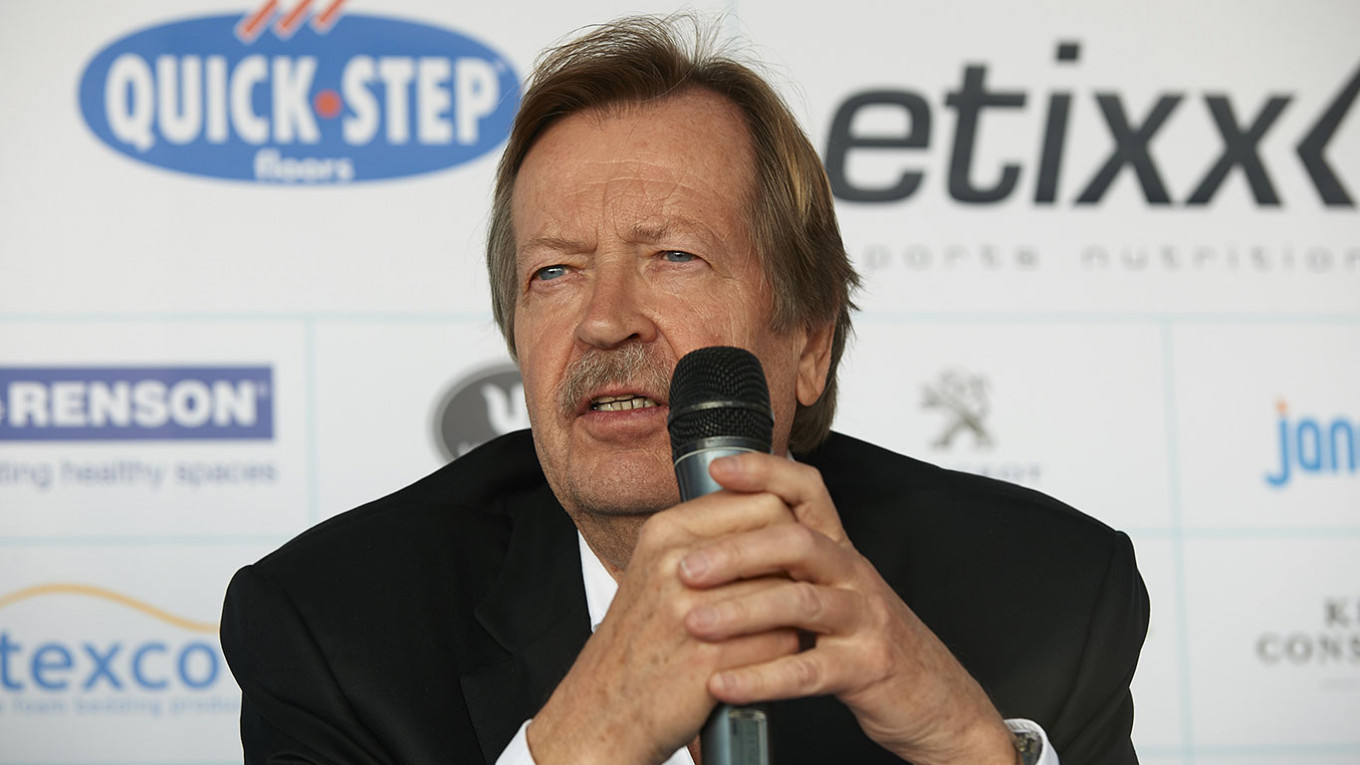When Russian President Vladimir Putin ordered a full-scale invasion of neighboring Ukraine on Feb 24., the West responded with a barrage of economic sanctions.
That included cutting seven Russian banks from global financial messaging service SWIFT, stopping them from being able to send and receive money abroad. The move effectively cut the banks out of the global financial system.
But SWIFT stopped short of sanctioning banks that handle Russia’s energy payments: a decision that has been criticized by the company’s former CEO and president, Bessel Kok.
“If you want to sanction [someone] — either do it good, or don’t do it,” Kok said in an interview with The Moscow Times Friday. (Kok is now the Chairman of the Supervisory Board that owns The Moscow Times).
“The banks that were selected for the first round of sanctions were not the banks that are instrumental to the Russian defense industry, the Putin household, the gas industry.”
Since its inception, SWIFT has become an integral part of global trade, operating in over 200 countries and partnering with more than 11,000 banks.
Cutting off its services makes both sending and receiving international transfers difficult, and if imposed on banks that deal with energy payments, such as Gazprom and Rosneft, it could leave the Kremlin unable to receive money from the sale of oil and gas.
Kok believes a blanket ban on all Russian banks from SWIFT, as well as the cessation of oil and gas imports to Europe, is a necessary step for EU-policy makers as the war in Ukraine worsens.
“It’s now so tragic what is happening. There must come soon a decision, to either let it go on, or we understand the price we have to pay,” Kok said.
In a bid to counter any possible further sanctions from SWIFT, the Kremlin has already begun exploring alternative avenues for receiving energy payments. They include the expansion of Russia’s domestic financial messaging system, SPFS, which offers similar services but at a much more limited capacity.
“Currently [SPFS] international services are limited to countries such as Armenia, Turkey, Uzbekistan, and Kazakhstan,” analysts at Morgan Stanley said in an interview with Reuters.
“Russia like other countries has their own domestic system, but it doesn’t have the reach, SWIFT has 20 billion messages a year, over 200 countries, so the bypass, is possible but I don’t think it will be very effective”
Rather than worrying about SPFS, Kok is more concerned that by imposing sanctions on only a handful of organizations, sanctioned banks will be able to operate with unsanctioned counterparts inside of Russia, and circumvent the blocks.
“If you leave banks out of the sanctioning, then arrangements can be made with unsanctioned and sanctioned banks,” Kok said.
SWIFT’s decision to sever its ties with certain Russian banks is the second time the company has used its international influence to put pressure on a country’s economy. The first sanctioned in Iran in 2012 following orders from the Obama administration.
When Kok established the company in 1973 alongside SWIFT’s founders and executives, it was a move aimed at revolutionizing the outdated Telex system. He says he never could have imagined creating a potent tool of political warfare.
”SWIFT has done a great job for the global economy,” he says. “But now it has turned out as a [political] vehicle— who would’ve thought that?”
A Message from The Moscow Times:
Dear readers,
We are facing unprecedented challenges. Russia's Prosecutor General's Office has designated The Moscow Times as an "undesirable" organization, criminalizing our work and putting our staff at risk of prosecution. This follows our earlier unjust labeling as a "foreign agent."
These actions are direct attempts to silence independent journalism in Russia. The authorities claim our work "discredits the decisions of the Russian leadership." We see things differently: we strive to provide accurate, unbiased reporting on Russia.
We, the journalists of The Moscow Times, refuse to be silenced. But to continue our work, we need your help.
Your support, no matter how small, makes a world of difference. If you can, please support us monthly starting from just $2. It's quick to set up, and every contribution makes a significant impact.
By supporting The Moscow Times, you're defending open, independent journalism in the face of repression. Thank you for standing with us.
Remind me later.







